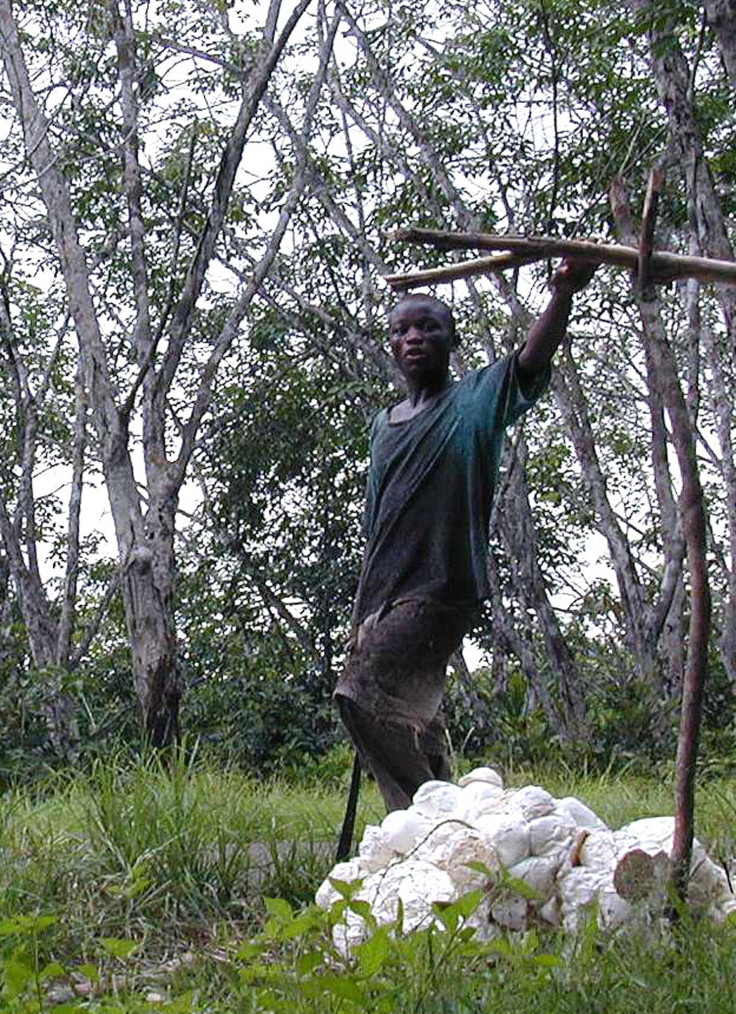Firestone Keeping Ebola Away From Employees In Liberia Through Low-Tech Intervention Program

In 1926, Firestone Tire & Rubber Company founded a production facility in Liberia, which today extends across 185 square miles and employs more than 8,000 workers who harvest, process, and ship natural rubber and latex to the United States. Since the Ebola outbreak spread to Liberia and quite naturally entered the rubber farm itself, approximately 71 Firestone Liberia employees, family members, retirees, and people living in the surrounding communities have contracted the deadly virus. Of these, Firestone's Ebola Treatment Unit has helped 17 people survive and has become, in the process, a model medical center in the eyes of health officials worldwide.
In a country where cases of Ebola are doubling every three weeks, how exactly has Firestone Liberia withstood the viral storm? Oddly enough, it began with the most ordinary reaction to the news of a first case of Ebola in March: the executive team Googled the word ebola, according to The Wall Street Journal. Like most of us, Ed Garcia, president of Firestone Natural Rubber Company LLC, and his team knew little about the virus when the outbreak began.
Learning more about the threat they faced, Garcia and his team quickly sketched an action plan to protect their employees. They erected two make-shift Ebola isolation clinics, built with shipping containers and plastic wrap. After learning more by way of Professor Internet, they distributed to the company hospital's staff the plantation’s stock of hazmat suits, normally reserved for chemical spills. And, as the need arose, they trained medical staff how to handle patients and instructed janitors in the proper method of burying the corpses. As Garcia, who is responsible for running the plantation, explained to the WSJ, “It was like flying an airplane and reading the manual at the same time.”
A Company Town in Liberia
The population of Firestone Liberia’s “company town” — known as Harbel and named after founder Harvey Samuel Firestone and his wife, Idabelle — totaled nearly 25,500 people at last count. This rarity in tropical Africa boasts one hydroelectric power plant, a botanical research division, and a radio service, all operated by Firestone. The company also maintains roads, water towers, housing, schools, telephone lines, and a hospital. Certainly, then, Firestone Liberia has had more to work with than most of Liberia when combatting this illness. However, its success goes far beyond an easy start.
In addition to creating a makeshift Ebola Treatment Unit, Firestone Liberia’s emergency response has included active investigations, contact tracing, and intervention measures. The company has conducted a mass education program, which involved teachers from the company’s schools going door-to-door to explain the disease not only to its employees but also to at least 72,000 additional people residing within the general community and surrounding areas. Among the company’s most innovative decisions was its use of in-house radio station to broadcast interviews with survivors as a way to directly educate those ignorant or even doubtful of the disease's existence. According to the WSJ, Levi Zeopueger recently entertained his listeners with the details of his illness: “I was unable to lift a plastic bottle of water, can you imagine?”
Today, Firestone Liberia is working to extend its effective methods in curbing the spread of disease throughout the country by collaborating with the Liberian Ministry of Health and Social Welfare, the Centers for Disease Control and Prevention, and the World Health Organization. Even more, the company is generously donating funds to others who war against the disease. In September, Bridgestone Corporation, Firestone’s parent, divided $1 million among Samaritan’s Purse and UNICEF.
Some subtly downplay Firestone's success where government's have failed by citing the company's great financial power and practiced organizational abilities. However, others see more human qualities in play. Clearly, the tremendous will and social concern demonstrated by the corporation's many employees have made all the difference in preventing the spread of disease.



























